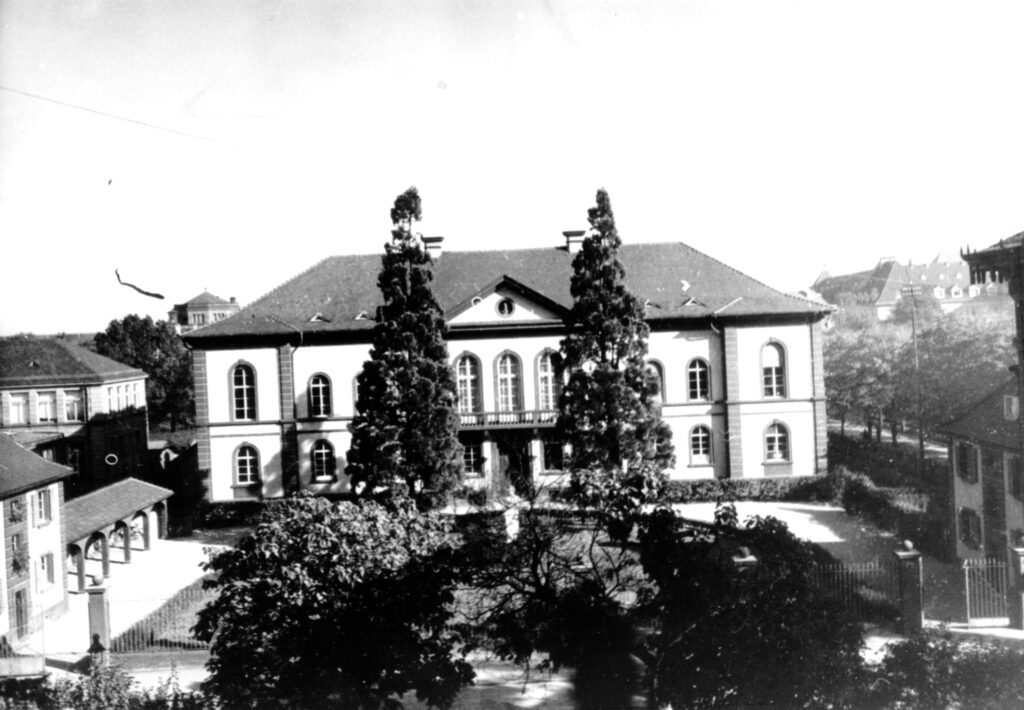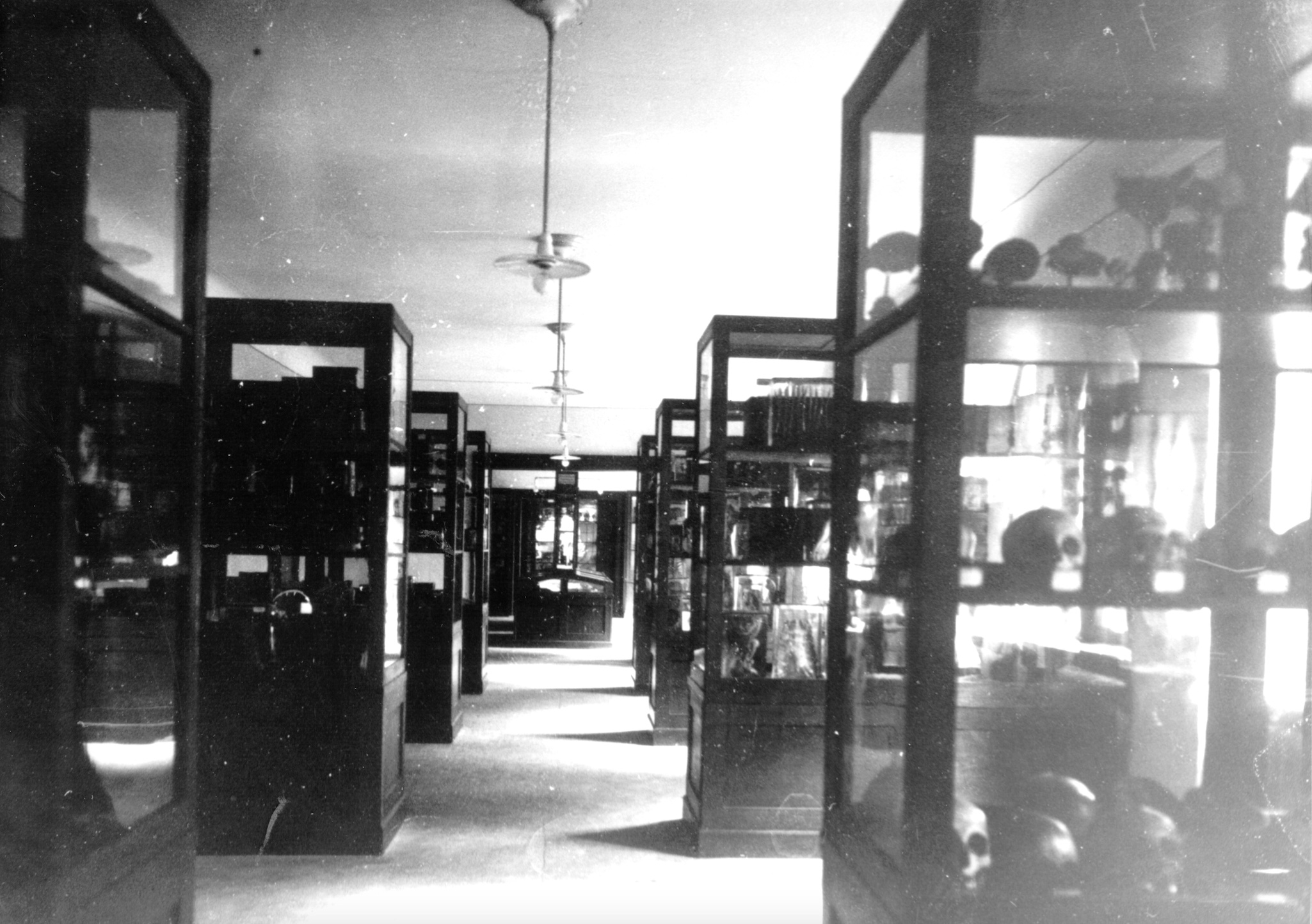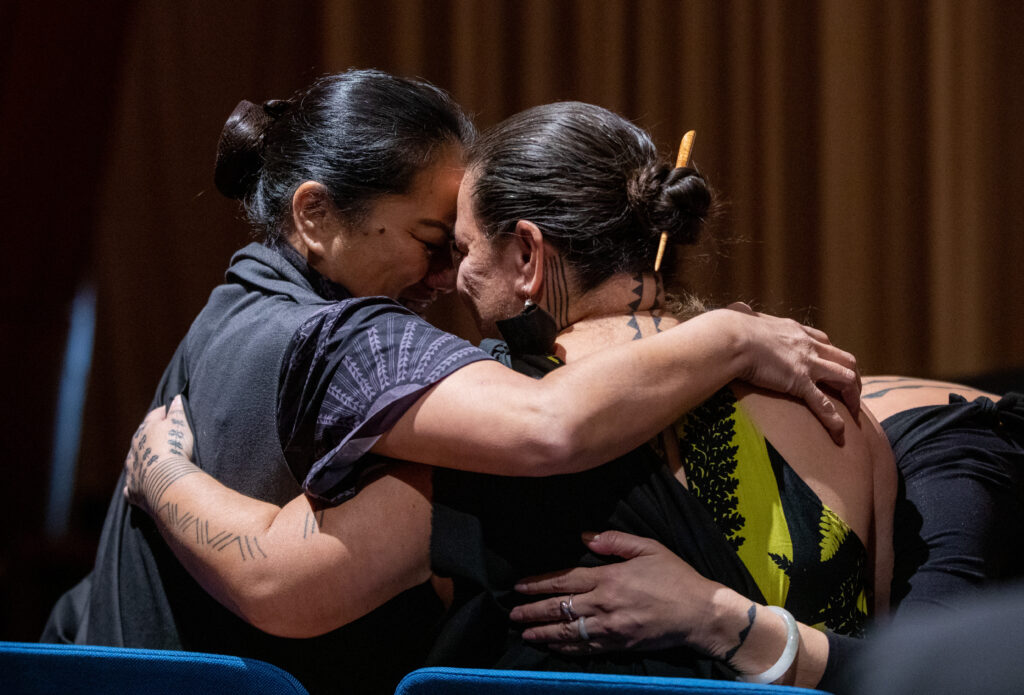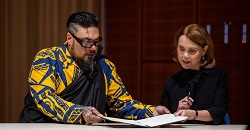Colonial past of the University of Freiburg

The University of Freiburg was involved in German and European colonialism in many ways. Academics from various disciplines were active supporters of German colonial expansion both within the university and extramurally, and in some cases profited from it professionally. For decades, the university was also the venue for public lectures on colonial science and politics, and this had an impact on Freiburg’s society. However, there are also colonialist connections to the disciplines of geography, ethnology, anthropology, medicine, economics and history, as well as other subjects.
One example: the Alexander Ecker Collection
Especially problematic are connections with ‘racial science’, social Darwinism and the anthropological Alexander Ecker Collection which draws on these concepts. The anatomist Alexander Ecker initiated this collection in 1857, and although it consists largely of skulls from south-west Germany, Ecker was also keen to find skulls from all parts of the world. One of the first ‘items’ was the skeleton of an African who died in Freiburg in 1810. The establishment of the biological-anthropological collection went hand-in-hand with the ethnographic collection, which was then given to the municipal museums on permanent loan. Of the approximately 1,350 skulls still in the Ecker collection today, for example, around 120 are from Africa.
When sourcing overseas, the curators Ecker and in particular his successor Eugen Fischer utilised a network of friends and colleagues who procured human remains on request. These were often excavated, but some also came from hospitals, including military hospitals. A further problem arose during the period of formal German colonial rule, when human remains were deliberately procured in the colonies of the German Empire. In the case of German New Guinea, Fischer sent a request to the administration and received three whole heads of executed people in 1905. That same year, he published an essay on his studies of them. In the case of Cameroon, it can be assumed that the body parts brought to Freiburg came from people killed in the course of brutal military expeditions.
In a social Darwinist worldview, peoples and ‘races’ were classified as superior or inferior and typologised and filed as a matter of course. The ‘collection’ implied an ‘objectification’ of deceased people: human remains were given numbers, depersonalised and stripped of their dignity. The ‘collectors’ did not seek the consent of family members, for example.
The Freiburg professor and collection curator Eugen Fischer became one of the most famous ‘racial researchers’ and eugenicists of the 20th century. During his time in Freiburg, he carried out racist, colonialist ‘research’ in German South West Africa (now Namibia) in 1908. He donated the human skeletons he robbed from graves there to the University of Freiburg for the Ecker Collection. His well-received paper on the ‘Rehoboth Basters’, published in 1913, is a contribution to the strong rejection of ‘mixed marriages’. It served as a springboard for his career in Freiburg and later in Berlin.

Inventory and processing
There are numerous papers on the history of the University of Freiburg as well as on a number of important academics – including Eugen Fischer. However, there has not yet been a systematic interdisciplinary survey, synopsis and analysis of colonial entanglements. Only individual, mainly unpublished student papers have been written on individual aspects of colonial history, but there is no overarching examination of the entire university. Civil society actors – not least the initiative freiburg-postkolonial.de – have already done some preliminary work, particularly on the history of geography and the Ecker Collection. In a study commissioned and published by the city of Freiburg (Freiburg und der Kolonialismus, Freiburg i. Br. 2018), Grewe, Himmelsbach, Theisen and Wegmann pointed out the key role played by university members in the locality: they found that university professors played a prominent role in colonial propaganda and in (colonial) academic associations – including outside of their teaching activities; the university itself was a central location for mostly pro-colonial information or promotional events. The exhibition ‘Freiburg and Colonialism: Yesterday? Today!’ (2022-23), organised by the city’s museums, also highlighted the role of the university.
One of the tasks of the University of Freiburg today is to deal appropriately with this legacy in terms of remembrance policy. The bust of Alexander Ecker, which has been spray-painted several times, is currently under lock and key; the plinth, which has also been spray-painted repeatedly, stands in front of a university building without any contextualisation. The Aula (KG I) houses a bust of Imperial Chancellor Otto von Bismarck, who is perceived in a differentiated way in German history, but is mainly seen by African guests and students, for example, as the protagonist of the Berlin Congo Conference (1884-85). A suitable form of contextualisation is still being sought.
The university is in favour of repatriation requests for human remains, although the state of Baden-Württemberg is the legal owner of the collections. In 2014, the University of Freiburg was able to hand over the first ‘ancestors’ to Namibia; in 2023, ‘iwi kupuna’ were handed over to a delegation from Hawai’i in a joint ceremony in Stuttgart.


At a solemn restitution ceremony, the remains of nineteen people of Hawaiian descent were returned to representatives from the US state of Hawaii.
As part of the reappraisal of the provenances in the Alexander Ecker Collection, an international advisory board of mainly African researchers looked into Freiburg’s past (funded by the German Centre for Lost Cultural Property). This resulted in recommendations for dealing with the colonial heritage, and these are being examined by the university. A follow-up project funded by the Volkswagen Foundation is focussing on the ‘Restitution of Dignity’. Through numerous innovative formats of academic communication, members of the Africa Centre for Transregional Research (ACT) are trying to raise awareness of one of the most difficult chapters in the university’s history and initiate further research.
Further information
-
The Alexander Ecker Collection
-
Sven Seelinger: Kolonialgeographie in Freiburg. Der Lehrstuhl für Geographie an der Albert-Ludwigs-Universität Freiburg i. Br. 1886 – 1919 (de)
-
Universität und Kolonialismus – Das Beispiel Göttingen (de)
-
Information on the publication „Freiburg und der Kolonialismus“ (2018) (de)
-
Press release about the project ‘Restitution of dignity?’
-
Information on the catalogue „Freiburg und Kolonialismus: Gestern? Heute!“ (de)
-
Press release about the ceremonial repatriation of human remains to Hawaii